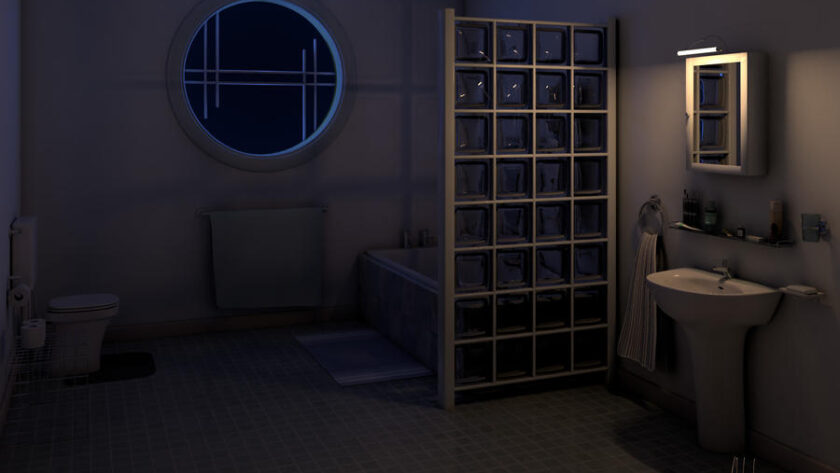Getting up and going to the bathroom at night, also known as nocturia, can be a disruptive and frustrating experience. It can interrupt our sleep, leaving us fatigued and affecting our overall well-being. In this article, we will explore the causes of nocturia and delve into three effective recommendations to reduce nighttime bathroom visits. By understanding the underlying factors and implementing practical strategies, you can regain a restful night’s sleep and improve your quality of life.
Understanding Nocturia:
Nocturia is a common condition that involves waking up one or more times during the night to urinate. It affects people of all ages, although it becomes more prevalent as we age. Nocturia can be caused by various factors, including:
- Nocturnal Polyuria: Nocturnal polyuria refers to the production of excessive urine during the night. This can occur due to factors such as hormonal imbalances, certain medications, heart or kidney conditions, or an overactive bladder. When the kidneys produce more urine at night than the bladder can comfortably hold, it leads to increased nighttime bathroom visits.
- Reduced Bladder Capacity: As we age, the capacity of the bladder to hold urine may decrease. The muscles responsible for bladder control may weaken, leading to reduced control and increased urgency to urinate. Age-related changes in bladder function contribute to nocturia.
- Fluid Intake and Diet: Consuming excessive fluids, particularly close to bedtime, can increase urine production and contribute to nocturia. Similarly, certain beverages like caffeinated and alcoholic drinks act as diuretics, stimulating urine production. Modifying fluid intake habits and dietary choices can have a significant impact on nighttime bathroom visits.
Thankfully there are things that you can remove from your diet or drink routine and things you can add to your diet and drink routine that fix this problem and have been proven to do so! There are also exercises that you can do in order to strengthen your bladder and ability to hold urine overall. We’ll explore those in today’s article.
Strategies To Reduce Nocturia
Fluid Management and Lifestyle Modifications: Effective fluid management is crucial for reducing nocturia. Consider implementing the following practices:
Spread fluid intake throughout the day: Instead of consuming large quantities of fluids in the evening, aim to distribute your fluid intake evenly throughout the day. This helps to prevent excessive nighttime urine production.
Limit caffeine and alcohol: Caffeinated and alcoholic beverages have diuretic properties, increasing urine production. Restrict their consumption, especially in the hours leading up to bedtime, to minimize the impact on bladder function.
Monitor fluid intake: Pay attention to your overall fluid intake. While it is essential to stay hydrated, be mindful of excessive consumption, especially if you are experiencing nocturia. Consulting a healthcare professional or a registered dietitian can help you determine an appropriate fluid intake level for your specific needs.
Manage bladder irritants: Some foods and drinks, such as spicy foods, citrus fruits, and carbonated beverages, can irritate the bladder and worsen nocturia symptoms. Identifying and avoiding these bladder irritants can be beneficial.
Pelvic Floor Exercises and Bladder Training: Strengthening the pelvic floor muscles and practicing bladder training techniques can enhance bladder control and reduce nocturia episodes. Consider the following approaches:
Pelvic floor exercises (Kegel exercises): Regularly performing pelvic floor exercises can strengthen the muscles that control urination. To perform Kegel exercises, contract the muscles used to stop the flow of urine for a few seconds, then relax. Repeat this several times throughout the day to strengthen the pelvic floor muscles over time.
Please Note: If you have a leaky bladder and cannot hold your bladder back at times, click here to get a fix this embarrassing problem immediately.
Bladder training: Bladder training involves gradually increasing the intervals between bathroom visits. Start by urinating at set intervals (e.g., every hour) and then gradually lengthen the time between visits. This helps to strengthen the pelvic floor, which are the muscles responsible for how often you urinate.
Timed voiding: Timed voiding is similar to bladder training but involves following a predetermined schedule for bathroom visits. Set specific intervals, such as every two hours, to empty your bladder, even if you don’t feel an immediate urge. Over time, you can gradually increase the time between each scheduled visit, helping to train your bladder to hold urine for longer periods.
Double voiding: Double voiding is a technique where you empty your bladder twice during each bathroom visit. After urinating initially, wait a few moments and then try to empty your bladder again. This helps to ensure that your bladder is completely emptied, reducing the likelihood of residual urine and potential nighttime visits to the bathroom.
Next, we’ll discover which foods, herbs and plants support the health and the strength of the bladder so that you can sleep through the night thoroughly.
Foods & Herbs For Strengthening Bladder Health:
- Cranberries: Cranberries are widely recognized for their potential benefits in supporting urinary tract health. They contain proanthocyanidins, which may help prevent bacteria from adhering to the bladder walls, thereby reducing the risk of urinary tract infections. You can get organic cranberry powder (for ease of use) online for quite cheap at this link by clicking here. This tastes great and makes for a great lemon cranberry summer lemonade!
- Pumpkin seeds: Pumpkin seeds are rich in magnesium, potassium, and antioxidants, making them a valuable addition to promoting bladder and prostate health. They have historically been used to support healthy bladder function and overall urinary tract well-being.
- Saw Palmetto: Combining pumpkin with saw palmetto can create a beneficial recipe for bladder control. Pumpkin seeds are rich in nutrients like magnesium, potassium, and antioxidants, which support bladder health and function. Saw palmetto, on the other hand, has been traditionally used to support prostate health and address urinary symptoms. By incorporating these ingredients into a recipe, you can harness their potential synergistic effects to promote better bladder control and overall urinary tract well-being.
Click here to get an organic pumpkin seed + saw palmetto formula that is created for bladder control for just 23 bucks!
- Marshmallow root: Marshmallow root has a long-standing reputation in herbal medicine for its positive effects on urinary tract conditions. It contains mucilage, which forms a protective coating on the bladder walls, soothing irritation and promoting bladder health. Marshmallow root is commonly consumed as a tea or in supplement form.
Click here to get organic marshmallow root for 28 bucks.
- Dandelion leaf: Dandelion leaf acts as a natural diuretic, aiding in increased urine production and the elimination of toxins from the bladder. This herb also contains potassium, a vital mineral for maintaining proper bladder function and overall urinary tract health. This also improves liver, gallbladder and digestive health. Click here get dandelion leaf extract for just 32 bucks.
- Watermelon: Watermelon, known for its high water content, helps support bladder health by promoting adequate hydration. Proper hydration assists in diluting urine and flushing out bacteria and toxins from the urinary tract. Watermelon also contains lycopene, an antioxidant that may contribute to bladder health.
Nocturia can significantly impact sleep quality and overall well-being. By understanding the causes of nocturia and implementing effective strategies, such as fluid management, pelvic floor exercises, and seeking medical evaluation when necessary, you can take proactive steps to reduce nighttime bathroom visits. Remember that each individual’s experience with nocturia may differ, and it is crucial to consult with a healthcare professional for an accurate diagnosis and personalized treatment plan. With proper management and support, you can regain restful nights and improve your quality of life.
Please Note: If you have a leaky bladder and cannot hold your bladder back at times, click here to get a fix this embarrassing problem immediately.
Recommended Reading:





